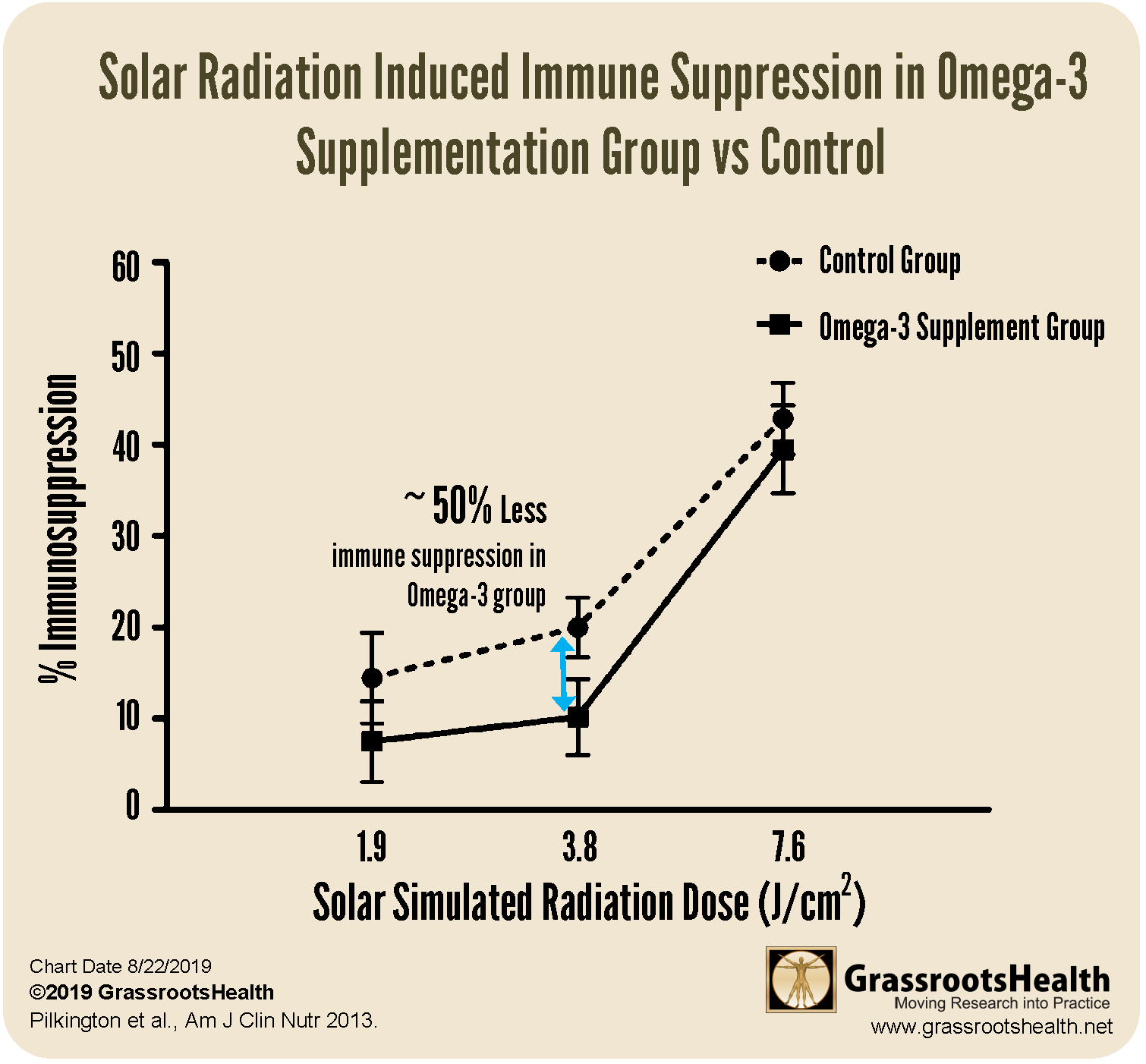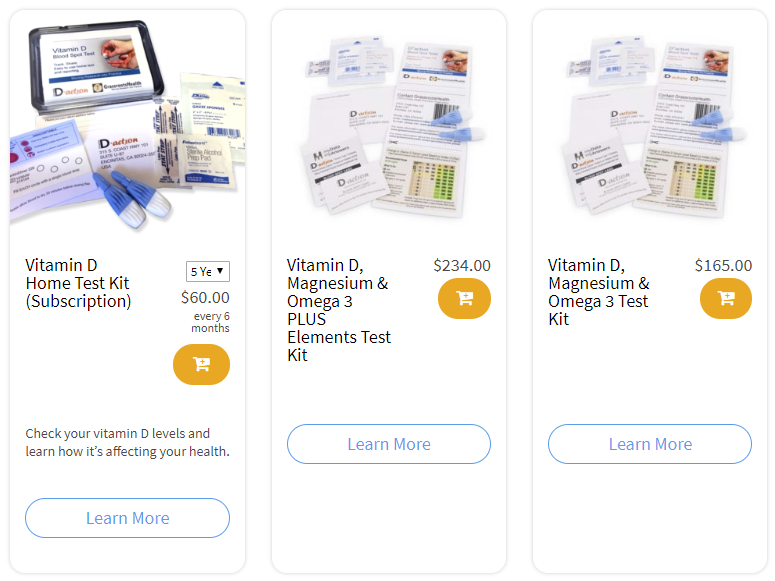Published on May 20, 2020
This month, as part of Sunshine Month, we have given a lot of information on sunshine and UV exposure as a way to support our health, not just from vitamin D production, but also other benefits the sun offers for our health.
However, non-melanoma skin cancers have been linked to solar ultraviolet radiation exposure (UVR), especially sunburns, which can lead to a decreased immune response in the skin cells called photoimmunosuppression. A healthy immune response is necessary for cancer prevention by causing destruction of the tumor cells and regulating the spread of cancer. This healthy immune response is called cell-mediated immunity (CMI).
Could Omega-3 Fatty Acids Help Protect Our Skin from UV Damage and Skin Cancer?
 Studies suggest a role of omega-3 fatty acids in reducing the risk of skin cancer by maintaining a healthy CMI and therefore inhibiting the growth and spread of cancerous cells. A randomized controlled study by Pilkington et al. looked to see if omega-3 supplementation reduced photoimmunosuppression of skin cells. The study involved 79 participants, half of whom were supplemented with 5 grams of an omega-3 supplement (70% EPA, 10% DHA), and half of whom took a placebo, for a 3 month period. After the supplementation period, each participant was exposed to a compound that caused a hypersensitivity reaction in their skin cells, followed by solar-simulated radiation, to compare the level of CMI between groups.
Studies suggest a role of omega-3 fatty acids in reducing the risk of skin cancer by maintaining a healthy CMI and therefore inhibiting the growth and spread of cancerous cells. A randomized controlled study by Pilkington et al. looked to see if omega-3 supplementation reduced photoimmunosuppression of skin cells. The study involved 79 participants, half of whom were supplemented with 5 grams of an omega-3 supplement (70% EPA, 10% DHA), and half of whom took a placebo, for a 3 month period. After the supplementation period, each participant was exposed to a compound that caused a hypersensitivity reaction in their skin cells, followed by solar-simulated radiation, to compare the level of CMI between groups.
What did the study find?
Compared to the control group, those in the omega-3 supplemented group experienced 50% less photoimmunosuppression when exposed to low doses of UVR (equivalent to approximately 8 and 15 minutes of mid-day summer sun exposure in Manchester, UK), indicating a protective effect from omega-3 supplementation. There was less of a protective effect from omega-3s seen at the highest dose of UVR (equivalent to approximately 30 minutes of mid-day summer sun exposure).
In conclusion, this study provides supportive evidence for how omega-3 fatty acids may help protect against skin cancer and demonstrated that daily supplementation with 5 grams EPA-rich omega-3 fish oils decreased photoimmunosuppression in skin cells when exposed to UVR.
Are you getting enough omega-3s?
To know if you are getting enough omega-3s, make sure you know your Omega-3 Index, and test your level of vitamin D! Testing these levels and taking daily steps to keep your Omega-3 Index at a target of at least 8%, and your vitamin D at a target level of 40-60 ng/ml (100-150 nmol/L), is important for all stages of health. Find out your levels today!
Are You Getting Enough Vitamin D to Help Yourself?
We’re in a time of great crisis that could be greatly affected by making sure you and everyone you know has a serum level of at least 40 ng/ml. Help us help you.
Do you know what your vitamin D level is? Be sure to test today to find out, and take steps to keep it within a target of 40-60 ng/ml or 100-150 nmol/L! Give your immune system the nutrients it needs to support a healthy you and protect yourself from unnecessary diseases.
GrassrootsHealth Nutrient Research Institute is preparing to do a Community RCT with the use of our myData-myAnswers nutrient health system that over 15,000 people are already using for their health. We will demonstrate how one can use the Nutrient Research Model established by Dr. Robert Heaney to establish the effect of vitamin D serum levels of at least 40 ng/ml (100 nmol/L) on risk reduction with different ethnicities in the population. Please let us know if you’re interested in helping sponsor this project.
Through GrassrootsHealth Nutrient Research Institute, you can also test your essential elements magnesium, copper, zinc and selenium, toxins such as lead, mercury and cadmium, as well as your omega-3 levels, inflammation levels and thyroid stimulating hormone (TSH) level. Find out your levels today! Log on to the test selection page (click the link below) to get your tests and see for yourself if your levels can be improved.
Make sure you track your results before and after, about every 6 months!
Click Here to Access the Test Page
How can I track my nutrient intake and levels over time?
To help you track your supplement use and nutrient levels, GrassrootsHealth has created the Personal Health Nutrient Decision System called
For each specific supplement, you can track what days you take it, how much, and many other details. This will help you know your true supplemental intake and what patterns of use work for you to reach and maintain optimum nutrient levels. Check it out today!









